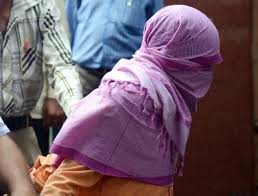
The board, presided over by Principal Magistrate Geetanjali Goel, pronounced the verdict and acquitted him of some of the charges.
The incident occurred in Munirka in south Delhi when a 23-year-old woman physiotherapy intern was brutally gang raped in a bus that she and her male companion had boarded.
The victim had succumbed to injuries Dec 29, 2012 at Singapore's Mount Elizabeth Hospital, where she had been airlifted for specialised treatment.
The incident sparked protests across the country with some people demanding the execution of the accused and some calling for chemical castration.
Police in their charge sheet said the juvenile was the most brutal of all the accused.
A native of Uttar Pradesh, the minor had moved to Delhi at the age of 11 and was arrested after the incident from Anand Vihar in east Delhi.
Six people, including the juvenile, were arrested in the case. While accused Ram Singh, Mukesh, Pawan Gupta, Vinay Sharma and Akshay Thakur faced trial in fast track court in Saket in south Delhi, the juvenile's case was heard by the board.
The case against Ram Singh was dropped after he was found dead, hanging in his cell in Tihar Jail.
The Supreme Court Aug 22 allowed the board to go ahead with pronouncing its verdict after accepting Bharatiya Janata Party leader Subramanian Swamy's plea for a fresh interpretation of the term juvenile.
Swamy had moved the apex court saying that the "mental and intellectual maturity" of minor offenders be considered instead of the age limit of 18 years while fixing their culpability.





Comments
Add new comment